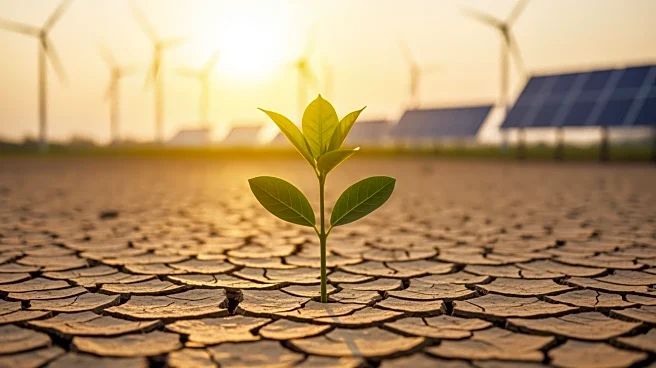What's Happening?
A draft agreement for the upcoming COP30 climate summit has been revealed, outlining significant steps to accelerate global climate action. The draft includes measures to review trade barriers that may hinder environmental progress and proposes a substantial
increase in financial aid to developing countries. This aid is intended to help these nations better withstand the impacts of extreme weather events, which are becoming more frequent and severe due to climate change. The agreement aims to triple the current financial support, reflecting a commitment to address the disproportionate effects of climate change on less developed regions.
Why It's Important?
The proposed COP30 agreement is crucial as it addresses both the financial and policy aspects of climate change mitigation. By increasing financial support to developing countries, the agreement acknowledges the need for equitable climate action, recognizing that these nations often lack the resources to effectively combat climate impacts. Additionally, the review of trade barriers could facilitate the adoption of green technologies and practices, promoting sustainable development. This approach not only aims to reduce global emissions but also supports economic growth in vulnerable regions, potentially leading to more resilient global economies.
What's Next?
As the COP30 summit approaches, negotiations will continue to refine the draft agreement. Key stakeholders, including government representatives, environmental organizations, and industry leaders, will likely engage in discussions to address any remaining concerns and ensure the agreement's feasibility. The finalization of the agreement will require consensus among participating countries, with potential adjustments to accommodate diverse economic and environmental priorities. The outcome of these negotiations will be pivotal in shaping international climate policy and determining the level of commitment from major economies.
















